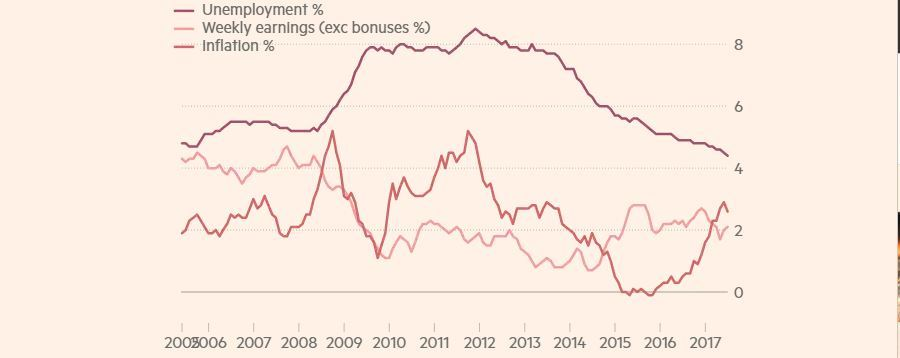
Suzanne Elsdon
Aug 17, 2017
Pay growth reflects the tightening employment market
Blog
The latest ONS figures show that unemployment for the quarter ending in June fell by 57,000 on the previous three months, while the jobless rate stands at a 42 year low of 4.4%. Statistics show that employment now stands at the highest rate ever since records began in 1971.
At the same time, national pay levels have started to creep up possibly due to a tightening in the labour market since the Brexit vote over a year ago. The ONS release shows that earnings growth in the three months to June was higher at 2.1%, compared to the same period in 2016, as well as an increase on the three months to May which was at 2%, up from the April low of 1.8%. Although these figures indicate a recovery in pay growth, living standards are still under pressure as inflation is running at 2.6%. In the last year the inflation rate has increased under pressure from a weaker pound on the back of the Brexit result. Our own Managing Director Wayne Brophy commented, “These latest ONS figures reflect the market as we see it. The so-called ‘Skills Gap’ continues to bite with our clients ramping up their requirements for skilled professional-level employees over the last year. In our specialist sectors, we have seen that companies have moved on from the uncertainty of the pre-referendum period, and demand for talent in the marketplace is only increasing, with more & more competition for the best people, which has increased candidates’ bargaining power when it comes to salaries offered.” Interestingly, despite Brexit, the numbers of EU workers in the UK is continuing to increase, although at a slower rate than the same period in 2016. While austerity has meant that public sector jobs has reduced to its lowest level since 1999, the private sector has continued to employ more people, with the majority of the increase being permanent full-time positions. Minister for Employment, Damian Hinds commented “The growth we've seen over the past year has been overwhelmingly about full-time, permanent jobs”.


